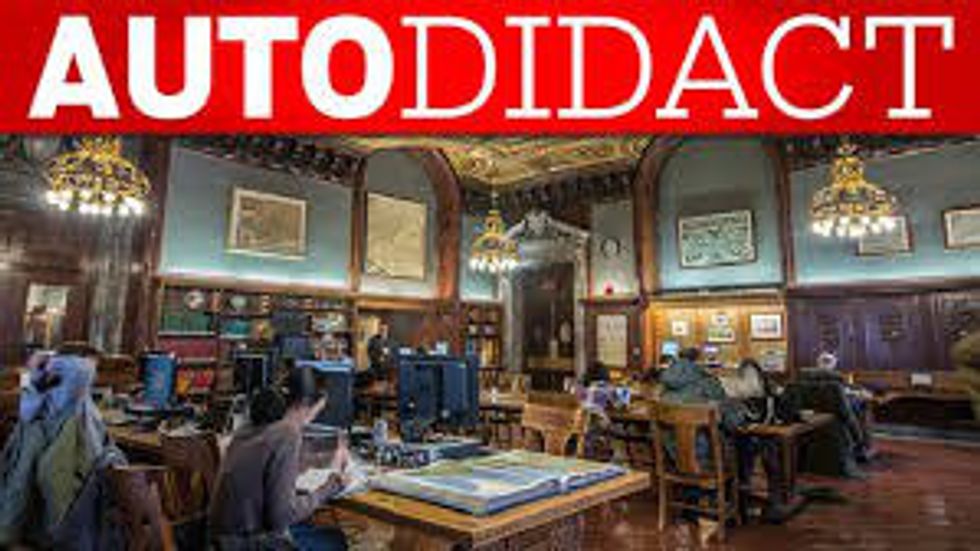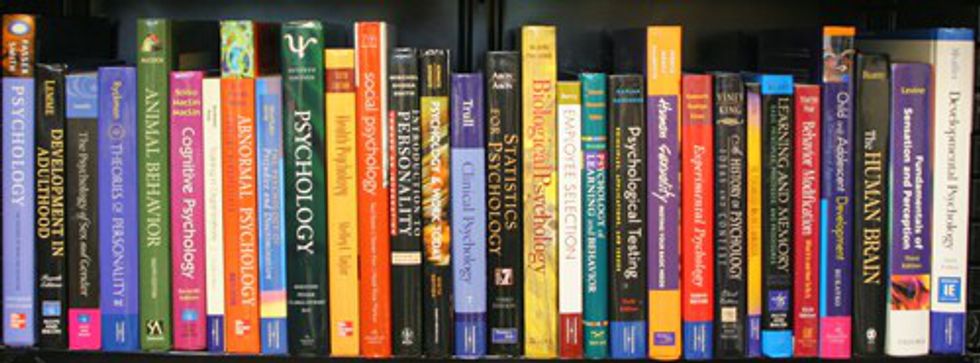As stated in my previous article “How English Majors Can Benefit From Psychology Classes,” I love doing independent reading, particularly classic literature. It helps me learn about other time periods and cultures. Nonfiction topics ranging from autobiography and memoir, psychology, spirituality, and humor are also intriguing. Sometimes I feel like such a strange English major for checking out classic literature books that I was not assigned to read. Regardless of whether I read fiction or nonfiction, I teach myself about human beings. Although I love school, it is nice to do independent teaching without the pressures of writing papers and studying for exams.
A couple of months ago, I learned that self-teaching is also called autodidacticism. Autodidacticism, as opposed to formal education, can be more flexible in that the “student” has the freedom to chose what he or she wants to learn about. There is more room for creativity. After all, Albert Einstein did state that imagination was more important than knowledge.
Autodidacticism is a good alternative for students who do not like sitting in a classroom or being overwhelmed by a lot of homework. Luckily, with modern technology, information is easily accessible. For example, if someone wants to self-teach his or herself psychology, he or she could read articles from Psychology Today, or watch TED Talk videos. Similarly, a person can learn a new language by watching videos on YouTube. Interestingly, my older brother Mike taught himself about the craft of film through online research before he even took IB Film in high school. Likewise, my friend Matt McCarthy teaches himself about politics through political nonfiction. Moreover, autodidacticism is also a good tool for book authors and filmmakers who want to make films on a particular topic. For example, if a filmmaker wanted to make a realistically accurate film about business, he or she would have to do research on business management and functioning.
As convenient as online research can be, it is still good to take out books from the library. Besides, sometimes online information can be inaccurate. Personally, my eyes get tired from reading online articles for too long. That is why I like printing articles and checking out physical copies of books from both my local library and the Adelphi University library. Additionally, self-education is much cheaper than attending college. As much as I love Adelphi, I want to save money after graduation by working and practicing autodidacticism like I have already been. When writing my previous article “Historical Women With Inspiring Stories,” I checked out books about Harriet Tubman, Eleanor Roosevelt, Rosa Parks, and Temple Grandin to use as sources. Currently, I am reading books and articles on the psychology of romantic love because the theme of my Major Authors in English class this Fall is Romantic Love and Gender.
I am not arguing that formal education is inferior to self-education. It all depends on the type of learner someone is. In fact, self-teaching skills are very helpful when it comes to research projects. In the Fall 2015 semester when I took Essentials of Healthful Living, we were required to write an essay on achieving a goal. My goal was positive thinking, and I checked out spiritual mindfulness books by authors including Tony Robbins and Deepak Chopra. Nonetheless, I do believe that more employers should get credit for self-educating themselves rather than just looking at a college degree paper. After all, some of history’s most renowned thinkers were self-educated including Charles Darwin and Abraham Lincoln. More importantly, life experience is the best form of education there is. When learning from our mistakes and challenges, we can give advice to our fellow friends and family. In addition, by making friends and accepting each other's differences, we can learn a lot about each other.













































